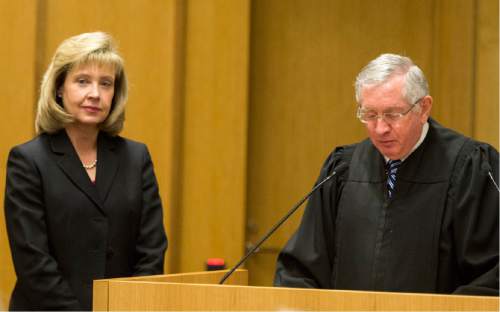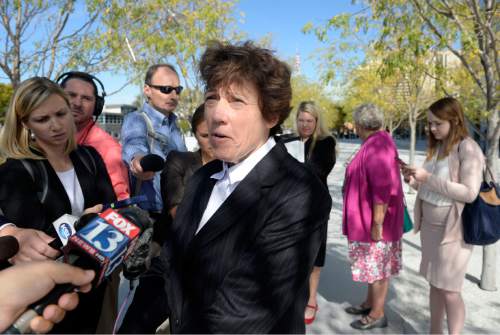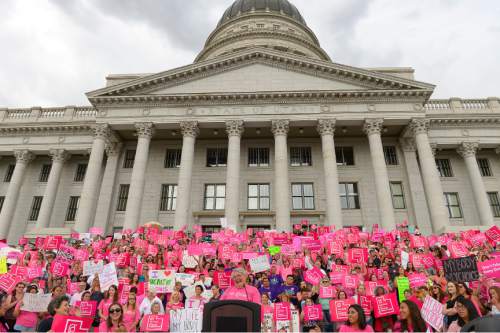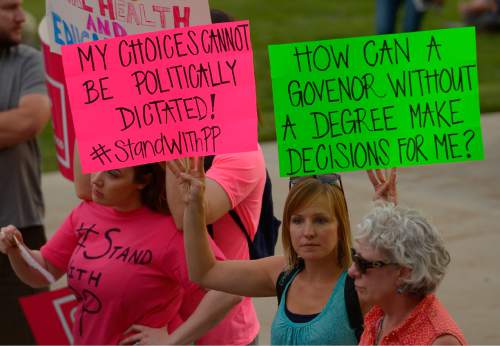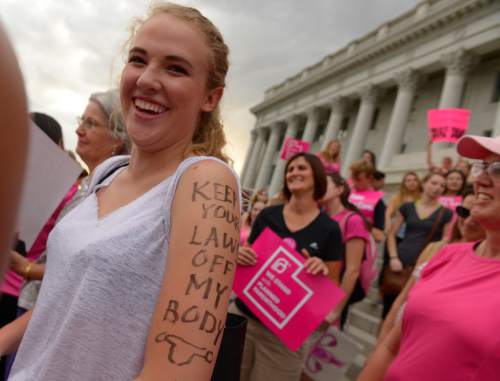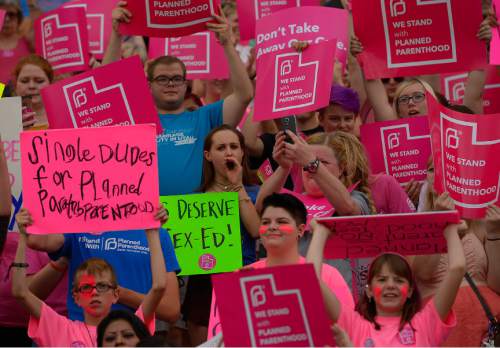This is an archived article that was published on sltrib.com in 2015, and information in the article may be outdated. It is provided only for personal research purposes and may not be reprinted.
A federal judge has sided with Utah's move to cut federal funding to Planned Parenthood amid debate about the national group's handling of fetal tissue.
The Tuesday ruling upholds the governor's August order blocking about $275,000 coming first to Utah and then on to the state affiliate. Gov. Gary Herbert said he was reacting to the release of videos secretly recorded by a California anti-abortion group.
On Tuesday morning, U.S. District Judge Clark Waddoups said in a written order that the state had authority to end agreements for an after-school sex-education program, a network that monitors sexually transmitted diseases and an STD testing program.
"Indeed, these are the types of decisions that should be left to elected officials," Waddoups wrote, "and not managed by the courts."
It's a reversal from a small victory for Planned Parenthood in October, when the same judge allowed the money to continue through the end of the year. The Tuesday decision ended the temporary order.
A health official wrote an email just days after Herbert's directive, warning that it would take away services "from women who would have been helped."
Still, Waddoups wrote, the governor's authority to act in the state's best interest trumps the possibility some Utahns may be harmed.
The Republican governor said he was reacting to the "casualness" and "callousness" of national Planned Parenthood officials depicted in recordings describing how they provide fetal tissue from abortions for medical research.
The national group later said it recouped expenses but did not profit, calling the videos misleading and subjectively edited. Planned Parenthood announced Oct. 13 it no longer would accept any payment for the tissue.
Even though the allegations of wrongdoing were "unfounded," Waddoups wrote, it's in the government's interest to avoid the appearance of corruption.
Utah can cut agreements, he added, just as it can fire a state employee who associates with someone alleged to have broken the law.
Karrie Galloway, CEO of Planned Parenthood Association of Utah, called the decision "regrettable" in a prepared statement, adding that the group's attorneys will consider "every possible way to continue the critical health care and education programs that are at risk. But let me be clear: We are committed to providing trusted health care and education that Utahns rely on us for — no matter what."
Attorneys for Galloway's organization said in October that Herbert knew officials with the Planned Parenthood Association of Utah had no part in the fetal tissue discussions but used the videos anyway as a platform for his own political views. The group sued the governor Sept. 28, saying he violated its constitutional rights in cutting the small but important piece of its $8 million budget.
But it failed to prove in court that a personal opposition to abortion was Herbert's main motivation for terminating the contracts, Waddoups wrote.
The Planned Parenthood Association of Utah saw about 46,000 patients in the 2015 fiscal year, according to its annual report.
The judge also pointed to a show of support from Planned Parenthood proponents as evidence the Utah group's reputation had not been harmed beyond repair.
The governor in a statement said the ruling "recognizes my ability to make contract decisions on behalf of the state." Herbert added "the health of all Utahns remains a priority," and that he will work with state and local departments, as well as nonprofit health centers, to "ensure access to these important services."
On Tuesday, Utah Department of Health's risk communications specialist Charla Haley said the contracts would continue through the end of the year.
Herbert's office would not say whether the organization would be allowed to receive federal money disbursed by the state in the future.
Not everyone at the state has agreed with its top executive on this decision.
Moving to end agreements "would hurt the citizens of Utah," wrote Robert Rolfs, Utah Department of Health's deputy director, in advance of the order.
Planned Parenthood attorneys pointed to Rolfs' warning, which was sent in an email to other Health Department workers, and another email request he made, asking employees to help provide the governor with reasons why the funding should continue. "We really don't have good alternatives for some of the services PP is providing," Rolfs wrote.
About 4,400 patients would not be able to receive STD testing without the Planned Parenthood resources, members of Rolfs' staff wrote in response, and another 3,700-plus people would be without free STD treatments. Local health departments could take up the STD treatments, one employee added, but the patients would each be charged a $35 fee.
Four days after Herbert's directive, Rolfs emailed the governor's staff, telling them "we can't avoid taking services away from women who would have been helped."
Utah is among several states to target Planned Parenthood this year, including Alabama, Arkansas New Hampshire and Texas. Many took another avenue, targeting Medicaid funding going to the organization. Planned Parenthood's affiliate in Alabama will continue to receive funding, according to terms of a November settlement. The state also will pay the organization's legal fees, The Associated Press reported.
Twitter: @anniebknox


